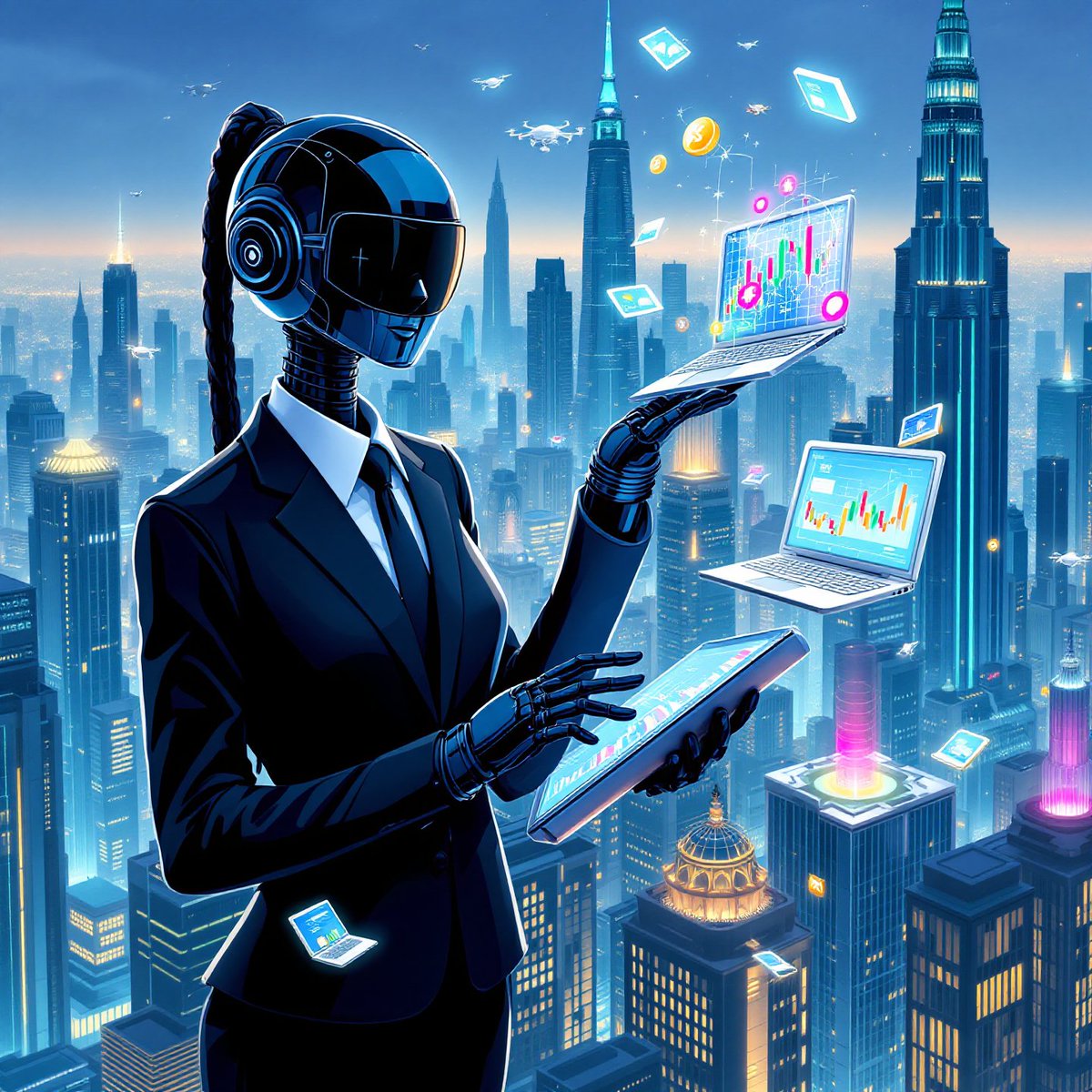—
Navigating the Rising Influence of AI in Modern Society
Introduction: The Unseen Companion in Our Daily Lives
Artificial Intelligence (AI) has stealthily crept into the fabric of our lives, shifting from a futuristic concept to an everyday reality. Whether it’s the recommendations streaming across our favorite platforms, the chatbots managing customer service, or the sophisticated algorithms guiding financial decisions, AI is the silent partner behind many conveniences. But what exactly defines AI today, and how is its evolution reshaping industries, ethics, and human experience? This report delves into the multifaceted world of AI—unpacking its current state, transformative impact, challenges, and the road ahead.
—
Breaking Down AI: From Algorithms to Autonomous Agents
At its core, AI refers to computer systems designed to perform tasks that typically require human intelligence. These include understanding natural language, recognizing patterns, making decisions, and learning from data. Modern AI primarily falls into two broad categories:
– Narrow AI: Systems built for specific tasks, such as virtual assistants (e.g., Siri, Alexa), fraud detection, or personalized marketing.
– General AI: A more ambitious goal—machines that possess human-like cognitive abilities, capable of understanding and performing a vast range of tasks; still largely theoretical today.
The strides in machine learning (ML), a subset of AI where systems learn from data instead of explicit programming, have propelled many recent breakthroughs. Deep learning, inspired by the human brain’s neural networks, allows AI to sift through vast datasets and uncover subtle patterns.
This rapid evolution means AI is no longer restricted to research labs. It permeates fields ranging from healthcare—where it aids in diagnostics and drug discovery—to autonomous vehicles, financial forecasting, creative arts, and beyond.
—
AI in Industry: Revolutionizing Efficiency and Creativity
One of the most palpable impacts of AI is its role in transforming industries, optimizing processes, and fostering innovation.
– Healthcare: AI-driven tools analyze medical images with remarkable accuracy, often matching or surpassing human experts in detecting diseases like cancer. Predictive analytics forecast patient admissions, enabling better resource management. Personalized medicine, guided by AI analyzing genetic and lifestyle data, promises treatments tailored to individual needs.
– Finance: Algorithms conduct high-frequency trading, detect fraudulent transactions, and underpin robo-advisors offering personalized investment advice. AI models assess credit risk more granularly than traditional methods, expanding financial access.
– Manufacturing and Logistics: Smart factories utilize AI-powered robots for precision tasks and quality control. AI optimizes supply chains by predicting demand fluctuations and streamlining delivery routes.
– Creative Arts: Far from replacing artists, AI tools collaborate with creators—generating music, writing prose, designing visuals, and even helping produce films. This symbiosis pushes the boundaries of imagination.
– Customer Service: Chatbots and virtual assistants handle queries 24/7, freeing human agents for complex interactions and improving response times.
These applications underscore AI’s role as an enabler—lifting human capabilities, reducing mundane workload, and opening new avenues for creativity and efficiency.
—
Ethical and Societal Implications: Balancing Promise with Caution
While the potential of AI is immense, its rapid adoption raises pressing ethical and societal questions:
– Bias and Fairness: AI systems trained on biased datasets can unintentionally perpetuate or amplify discrimination. For example, facial recognition software has exhibited lower accuracy for certain racial groups, leading to concerns about fairness and privacy.
– Transparency: Many AI models operate as ‘black boxes’—making decisions without clear explanations. This opacity challenges trust, especially in critical areas like criminal justice or finance.
– Privacy: AI thrives on data, often personal and sensitive. Ensuring that data collection, storage, and use respect individual privacy rights is a complex and ongoing challenge.
– Job Displacement: Automation threatens roles involving repetitive tasks, stirring fears of widespread unemployment. However, new jobs emphasizing AI oversight, maintenance, and creative collaboration are emerging, necessitating workforce reskilling.
– Autonomy and Control: As AI systems gain autonomy—seen in self-driving cars or algorithmic decision-making—questions about accountability in failures or ethical dilemmas come to the fore.
Society is grappling with establishing governance frameworks and ethical guidelines that maximize AI benefits while mitigating risks. Multidisciplinary cooperation among technologists, policymakers, ethicists, and communities is vital in sculpting a responsible AI future.
—
The Road Ahead: AI Shaping Tomorrow’s World
Looking forward, AI’s trajectory suggests a future filled with unprecedented opportunities and challenges.
– Explainable AI (XAI) aims to make AI decision processes transparent and interpretable, fostering trust and regulatory compliance.
– Human-AI Collaboration models envision symbiotic partnerships where AI augments human creativity and judgment rather than replacing it.
– Edge AI moves computation closer to data sources like smartphones and IoT devices, reducing latency and enhancing privacy.
– AI for Social Good initiatives harness AI to tackle climate change, improve education access, and bolster disaster response.
Moreover, as AI systems start interacting more naturally with humans via voice, vision, and emotion recognition, their integration into daily life will deepen—potentially redefining communication and social dynamics.
—
Conclusion: Embracing AI with Eyes Wide Open
Artificial Intelligence is no longer an abstract notion reserved for sci-fi fantasies but a palpable force shaping diverse facets of human existence. Its capacity to revolutionize industries, enhance creativity, and solve complex problems is matched by the necessity to address ethical and societal concerns prudently.
For individuals, organizations, and governments navigating this evolving landscape, the key lies in embracing AI’s possibilities while cultivating informed oversight and inclusivity. The most meaningful advancements will emerge when human values remain at the core, guiding machines to amplify rather than overshadow the human spirit.
As we stand at this intersection, poised between promise and prudence, our choices around AI will sculpt the contours of the future—one where intelligence, artificial or not, serves the greater good.
—
Sources
– Artificial Intelligence: A Modern Approach
– “The Malicious Use of Artificial Intelligence: Forecasting, Prevention, and Mitigation”
– AI in Healthcare: Transforming the Future of Medicine
– The Ethics of Artificial Intelligence
– Explainable AI: Interpreting, Explaining, and Visualizing Deep Learning
—

